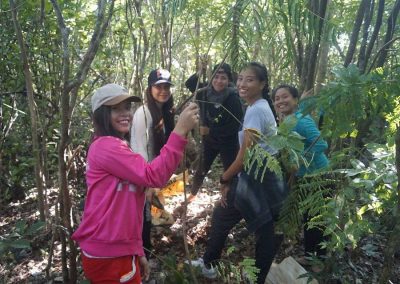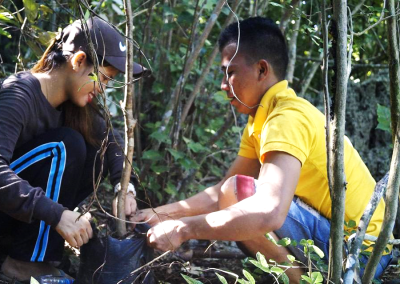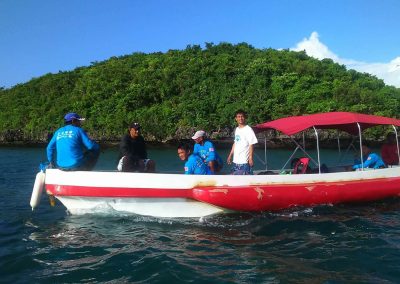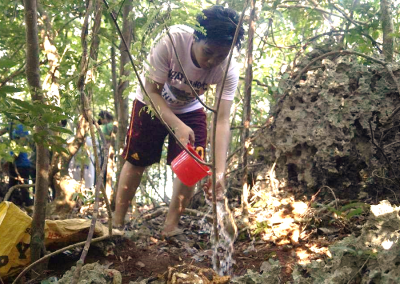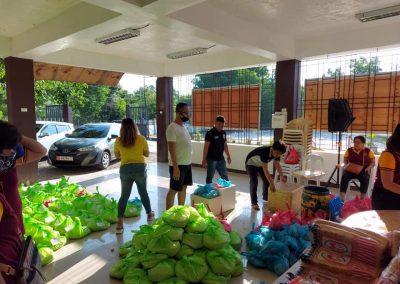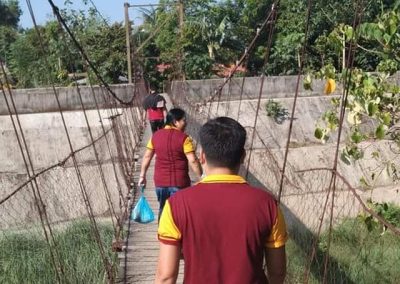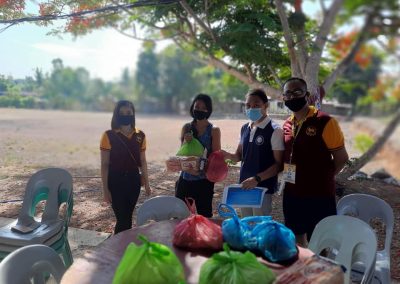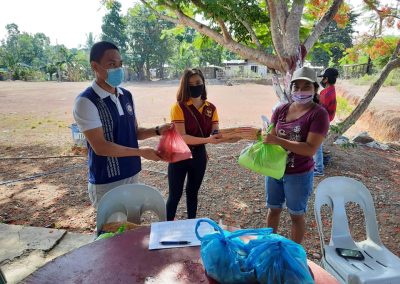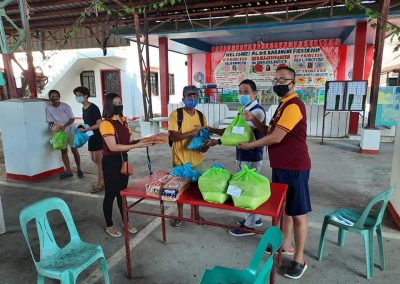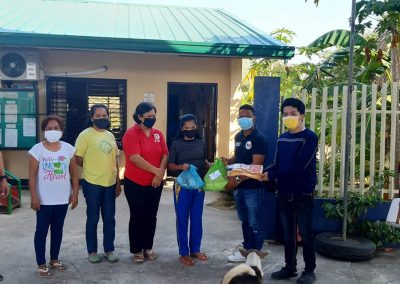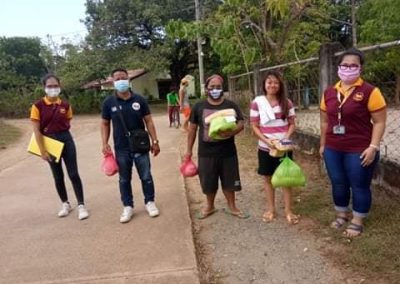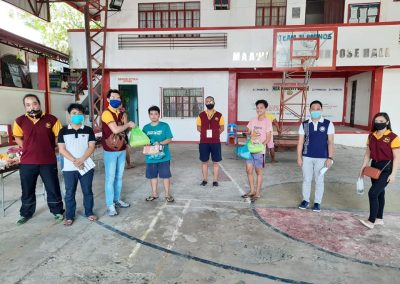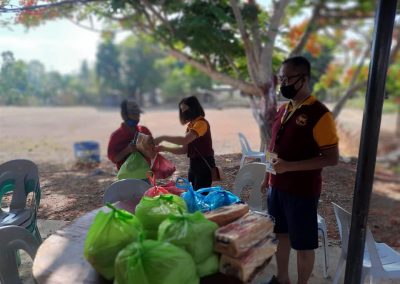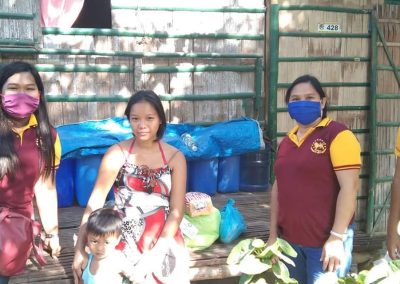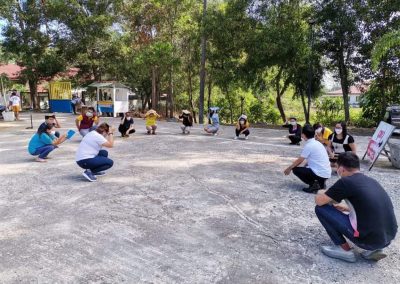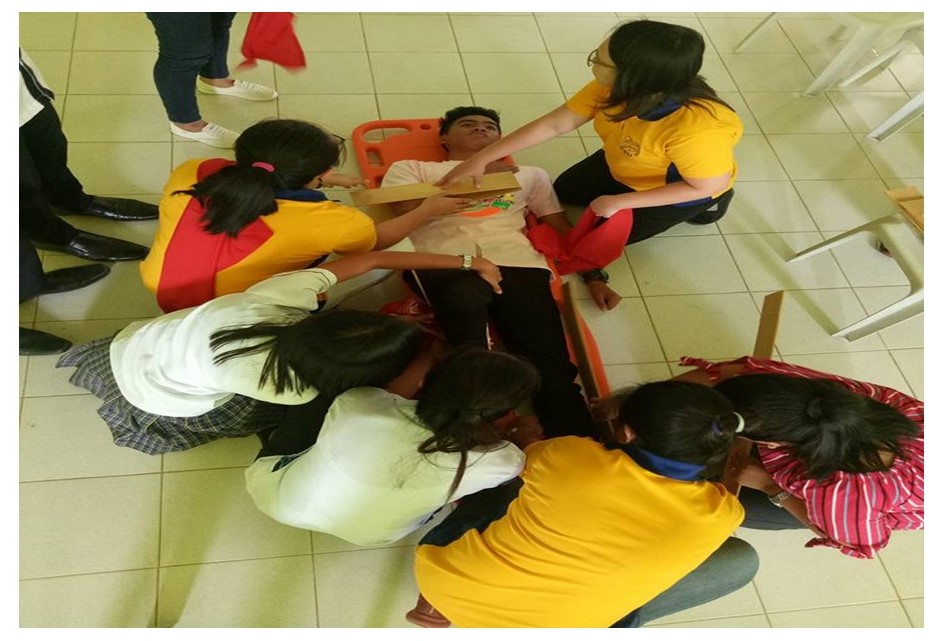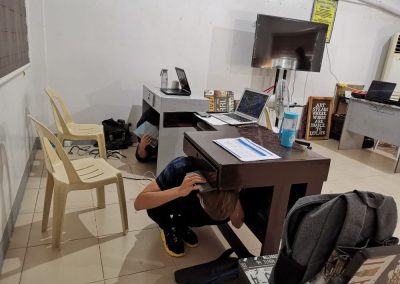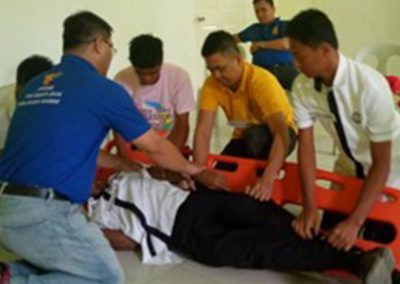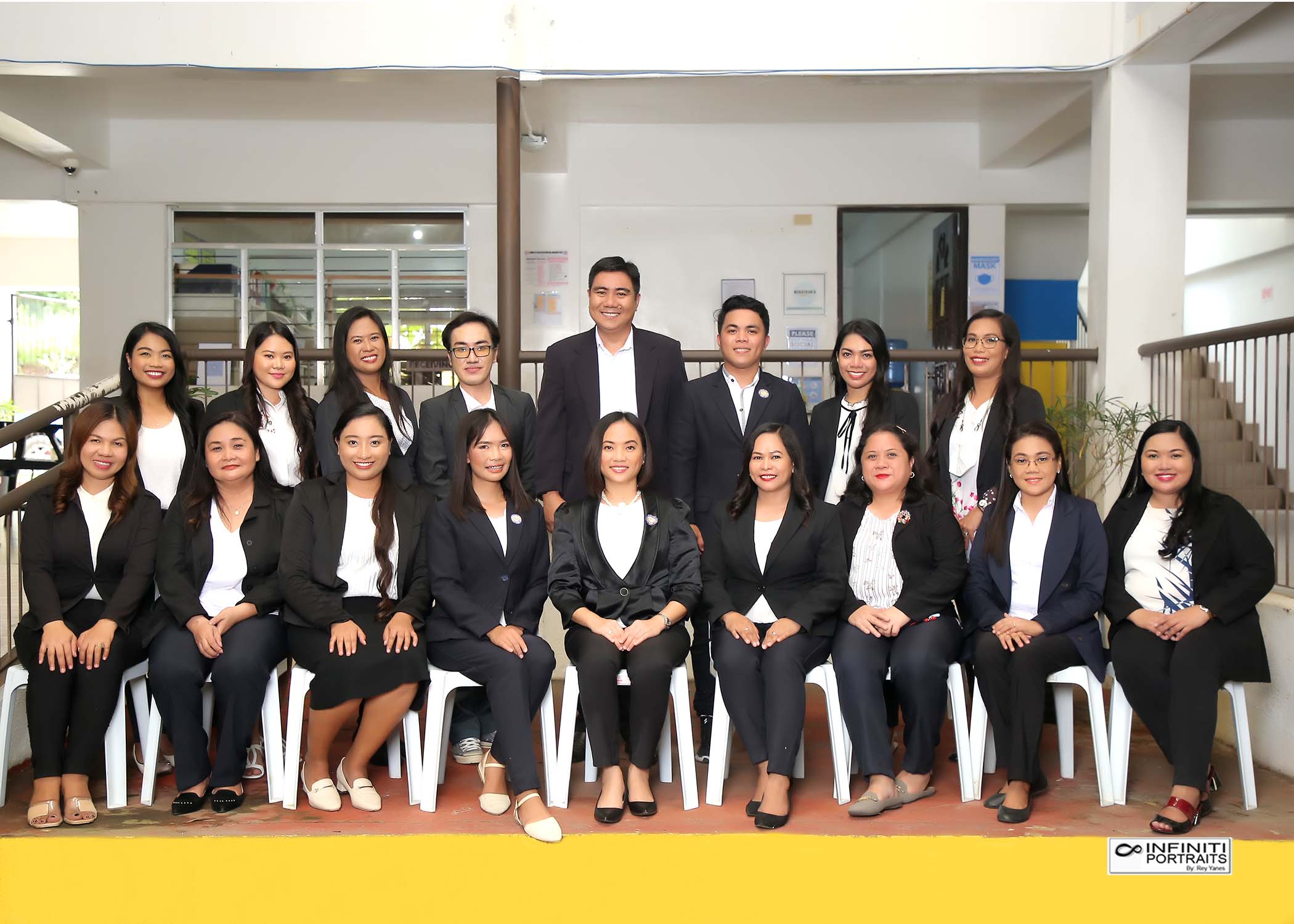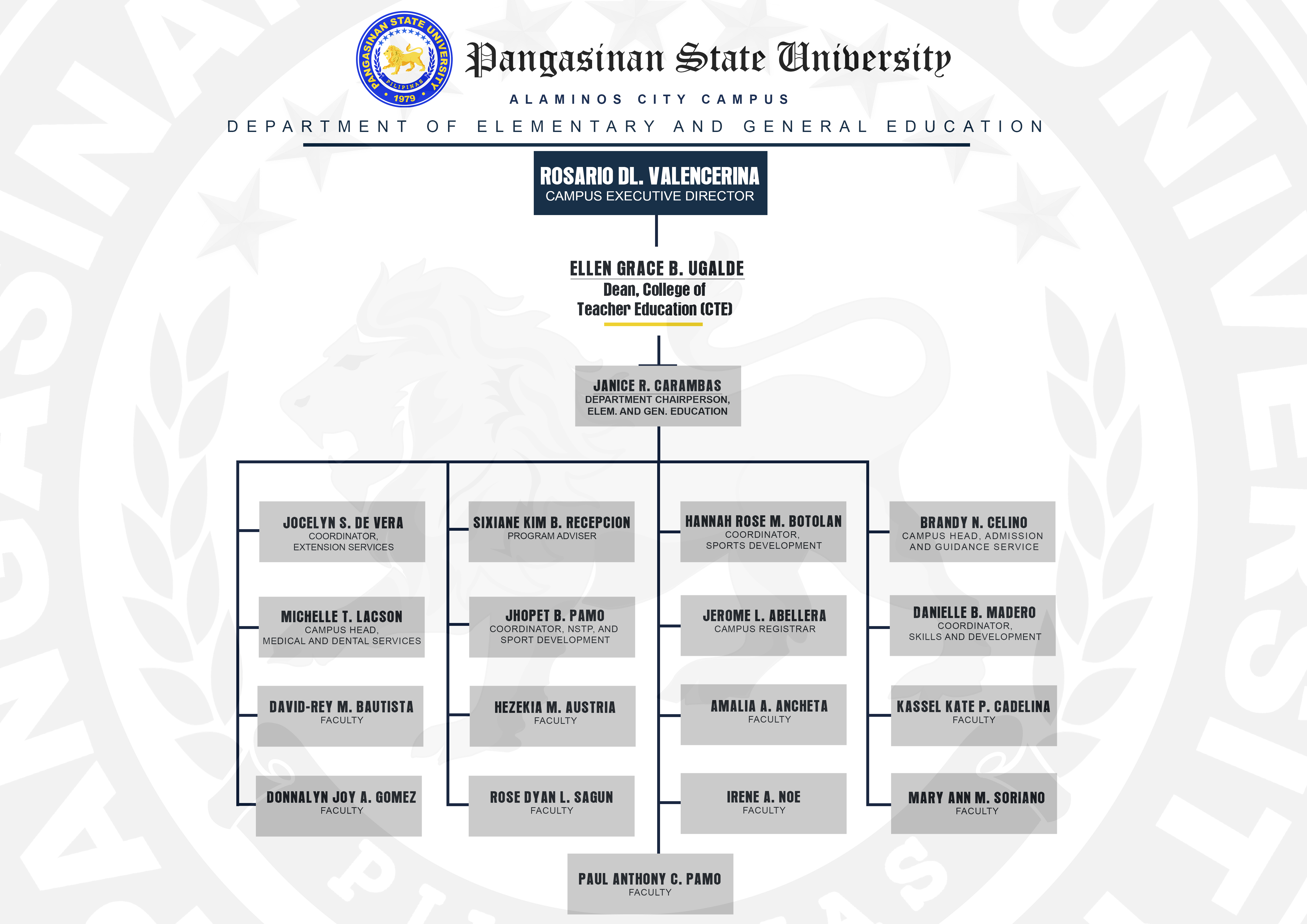
DR. JANICE R. CARAMBAS
Department Chairperson
WELCOME TO THE EGE DEPARTMENT
The Elementary and General Education Department (EGE) which offers the Bachelor of Elementary Education aims to produce future teachers who are responsive to the needs of the primary years of pupils. We expose our students to activities aligned with the University’s vision, mission, and core values. We also instill in them the importance of primary education and their role in shaping pupils to become responsive to the needs of society in the future. Most importantly, we let them realize that teaching is not just a profession but a noble act of service to humankind.
PSU-ACC has been committed to deliver quality education as evidenced in our performance in the teachers’ licensure examinations for the past years. Having 90 to 100% passing percentage in the previous results shows that our graduates are not only equipped with knowledge but also ready in the actual classroom setup.
Adopt-an-Island Extension Project
With a mission to increase the participation of students and employees in helping save nature, the campus adopted one of the 124 islands in Alaminos City and named it Fire Tree Island where students, faculty, and staff did coastal clean-up and planting of fire trees.
Students, faculty, and non-teaching participate in the Campus-based Basic Life Support, Basic First Aid, Fire and Earthquake Drill on April 7, 2017. Bureau of Fire Protection (BFP) and City Disaster Risk Reduction and Management (CDRRM) are invited to train participants.
Faculty, non-teaching staff, and student groove under the heat of the sun in support
to the University’s Health and Wellness Program.
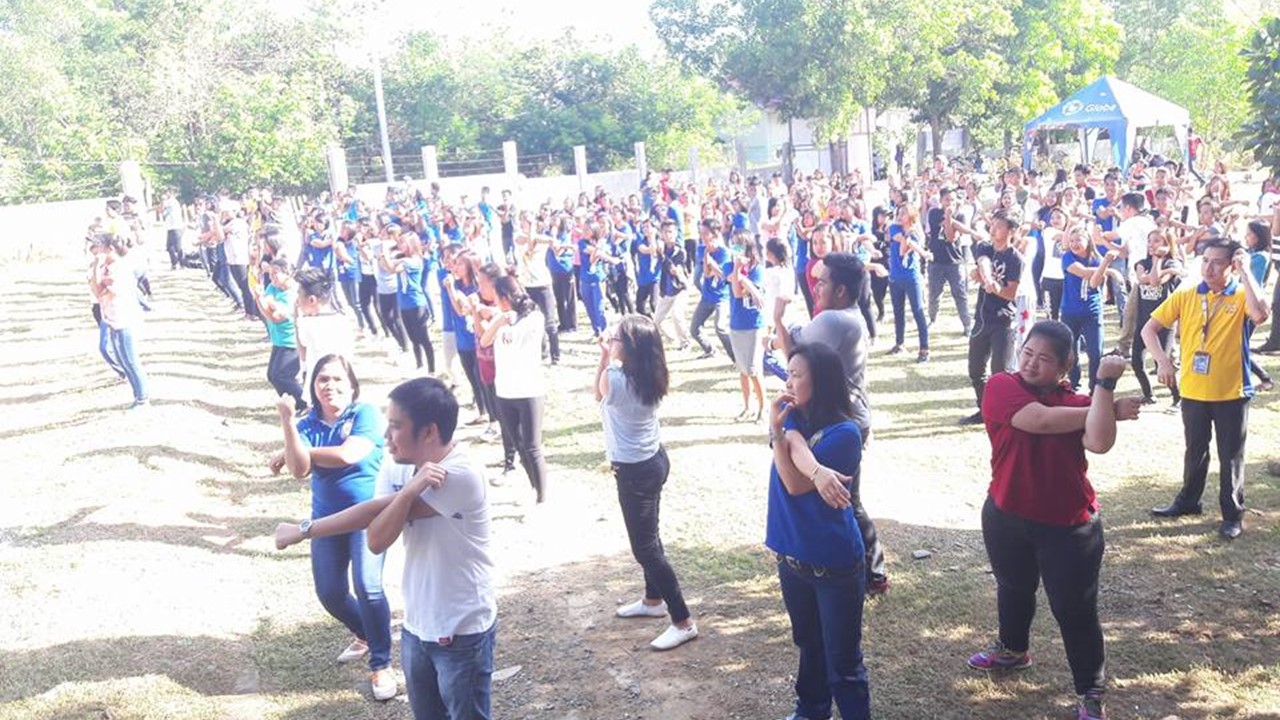


The Teacher Education students showcased their dance prowess and yell their best cheers during the Pep Squad Competition on September 25, 2017.

Mr. James Ison, BEED student, represents the Campus for the Poster- and Slogan-Making Contest during the 27th National Statistics Month on October 2016.
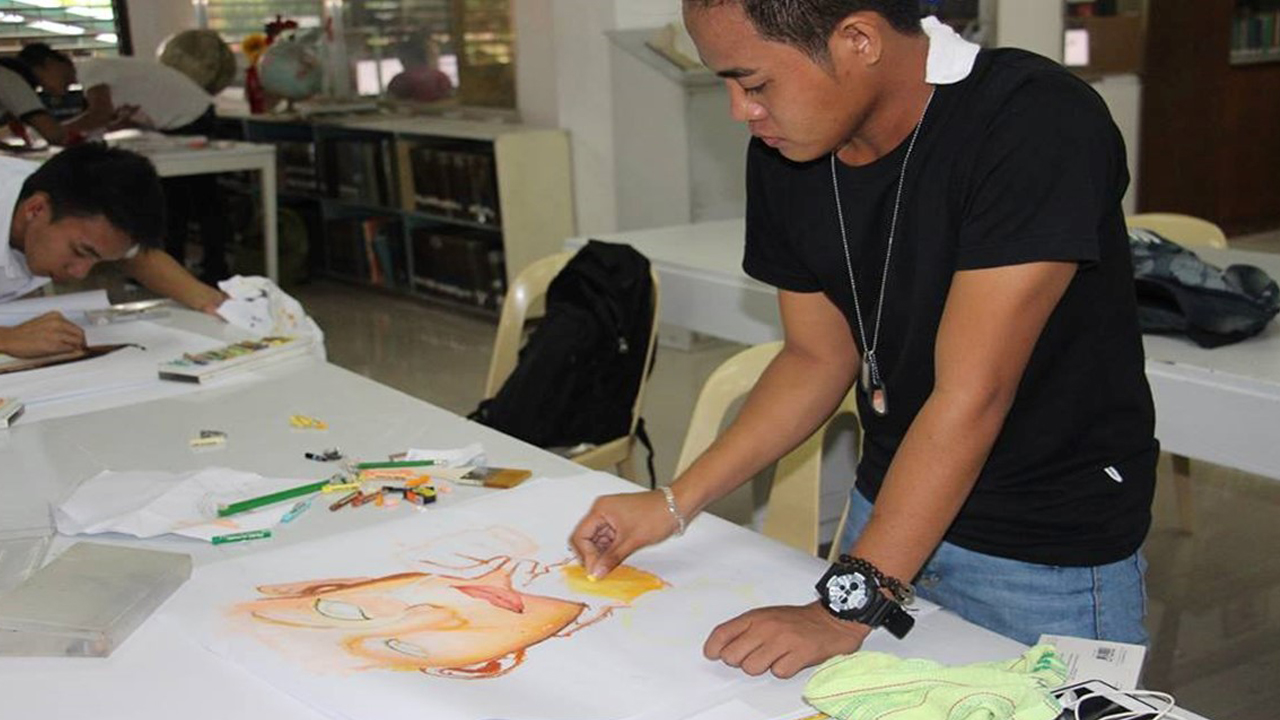
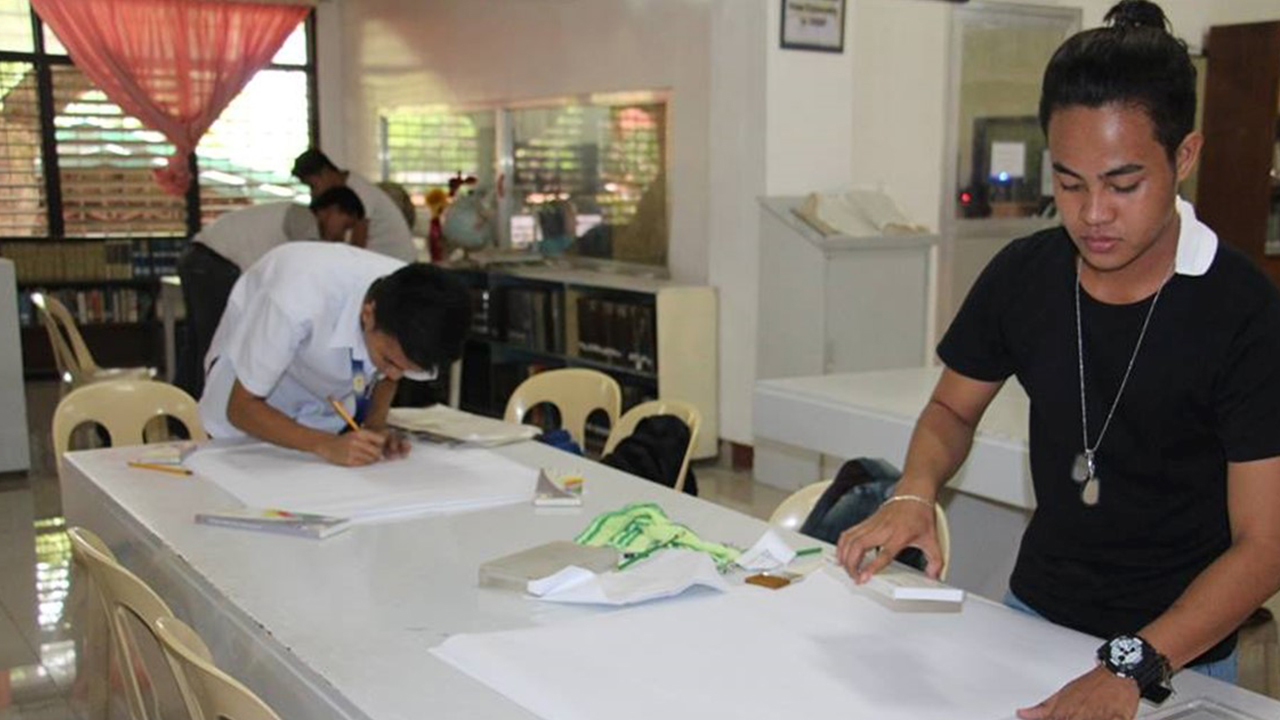
ACCREDITED
AACCUP LEVEL II
STUDENT’S EMPLOYMENT OPPORTUNITIES
After successful completion of all academic requirements of the degree/program, graduates of BEEd may practice teaching profession either in the elementary or college level.
The BEEd degree program aims to develop highly motivated and competent teachers specializing in the context and pedagogy for elementary education.
|
Program Outcomes |
Performance Indicators |
|
Articulate the rootedness of education in philosophical, socio-cultural, historical, psychological, and political contexts. Demonstrate mastery of subject matter/discipline. Demonstrate in-depth understanding of the diversity of learners in various learning areas. |
|
|
Demonstrate mastery of subject matter/discipline. Facilitate learning using a wide range of teaching methodologies and delivery modes appropriate to specific learners and their environments. Develop innovative curricula, instructional plans, teaching approaches, and resources for diverse learners. Manifest skills in communication, higher order thinking and use of tools and technology to accelerate learning and teaching. |
|
|
Facilitate learning using a wide range of teaching methodologies and delivery modes appropriate to specific learners and their environments. Develop innovative curricula, instructional plans, teaching approaches, and resources for diverse learners. Demonstrate in-depth understanding of the diversity of learners in various learning areas. Manifest meaningful and comprehensive pedagogical content knowledge of the different subject areas. |
|
|
Set challenging goals and tasks with determination and sense of urgency which provide continuous improvement and producing quality outputs leading to inclusive growth. Demonstrate mastery of subject matter/discipline. Pursue lifelong learning for personal and professional growth through varied experiential and field-based opportunities. Demonstrate in-depth understanding of the diversity of learners in various learning areas. |
|
|
Demonstrate mastery of subject matter/discipline. Apply skills in the development and utilization of ICT to promote quality, relevant, and sustainable educational practices. Demonstrate in-depth understanding of the diversity of learners in various learning areas. |
|
|
Articulate and discuss the latest development in the specific field of practice. Work effectively and independently in multi-disciplinary and multi-cultural teams Articulate the rootedness of education in philosophical, socio-cultural, historical, psychological, and political contexts. Facilitate learning using a wide range of teaching methodologies and delivery modes appropriate to specific learners and their environments. Develop innovative curricula, instructional plans, teaching approaches, and resources for diverse learners. |
|
|
Articulate and discuss the latest development in the specific field of practice. Demonstrate mastery of subject matter/discipline. Manifest meaningful and comprehensive pedagogical content knowledge (PCK) of the different subject areas. |
|
|
Articulate and discuss the latest development in the specific field of practice. Develop innovative curricula, instructional plans, teaching approaches, and resources for diverse learners. Manifest meaningful and comprehensive pedagogical content knowledge (PCK) of the different subject areas. |
|
|
Work effectively and independently in multi-disciplinary and multi-cultural teams. Develop innovative curricula, instructional plans, teaching approaches, and resources for diverse learners. Demonstrate a variety of thinking skills in planning, monitoring, assessing, and reporting learning processes and outcomes. Contribute to the generation of new knowledge by participating in various research and development projects. |
|
|
Demonstrate through institutional mechanisms, system, policies, and processes which are reflective of transparency, equity, participatory decision making, and accountability. Engage in relevant, comprehensive, and sustainable development initiatives through multiple perspectives in decisions and actions that build personal and professional credibility and integrity. Set challenging goals and tasks with determination and sense of urgency which provide continuous improvement and producing quality outputs leading to inclusive growth. Exhibit life-long learning and global competence proficiency in communication skills, intra/interpersonal skills, entrepreneurial skills, innovative mindset, research and production initiatives and capability in meeting industry requirements of local, ASEAN and international human capital market through. |
|
|
Demonstrate mastery of subject matter/discipline. Facilitate learning using a wide range of teaching methodologies and delivery modes appropriate to specific learners and their environments. Develop innovative curricula, instructional plans, teaching approaches, and resources for diverse learners. Apply skills in the development and utilization of ICT to promote quality, relevant, and sustainable educational practices. Pursue lifelong learning for personal and professional growth through varied experiential and field-based opportunities. |
|
|
Exhibit life-long learning and global competence proficiency in communication skills, intra/interpersonal skills, entrepreneurial skills, innovative mindset, research and production initiatives and capability in meeting industry requirements of local, ASEAN and international human capital market through relevant and comprehensive programs. Articulate the rootedness of education in philosophical, socio-cultural, historical, psychological, and political contexts. Pursue lifelong learning for personal and professional growth through varied experiential and field-based opportunities. Manifest meaningful and comprehensive pedagogical content knowledge (PCK) of the different subject areas. |
|
|
Apply skills in the development and utilization of ICT to promote quality, relevant, and sustainable educational practices. Demonstrate a variety of thinking skills in planning, monitoring, assessing, and reporting learning processes and outcomes. Utilize appropriate assessment and evaluation tools to measure learning outcomes. |
|
|
Apply skills in the development and utilization of ICT to promote quality, relevant, and sustainable educational practices. Demonstrate a variety of thinking skills in planning, monitoring, assessing, and reporting learning processes and outcomes. Utilize appropriate assessment and evaluation tools to measure learning outcomes. |
|
|
Apply skills in the development and utilization of ICT to promote quality, relevant, and sustainable educational practices. Utilize appropriate assessment and evaluation tools to measure learning outcomes. |
|
| Utilize appropriate assessment and evaluation tools to measure learning outcomes. |
|
|
Exhibit life-long learning and global competence proficiency in communication skills, intra/interpersonal skills, entrepreneurial skills, innovative mindset, research and production initiatives and capability in meeting industry requirements of local, ASEAN and international human capital market through relevant and comprehensive programs. Facilitate learning using a wide range of teaching methodologies and delivery modes appropriate to specific learners and their environments. Demonstrate a variety of thinking skills in planning, monitoring, assessing, and reporting learning processes and outcomes. Manifest skills in communication, higher order thinking and use of tools and technology to accelerate learning and teaching. |
|
|
Demonstrate through institutional mechanisms, system, policies, and processes which are reflective of transparency, equity, participatory decision making, and accountability. Set challenging goals and tasks with determination and sense of urgency which provide continuous improvement and producing quality outputs leading to inclusive growth. Exhibit life-long learning and global competence proficiency in communication skills, intra/interpersonal skills, entrepreneurial skills, innovative mindset, research and production initiatives and capability in meeting industry requirements of local, ASEAN and international human capital market through relevant and comprehensive programs. Practice professional and ethical teaching standards sensitive to the changing local, national, and global realities. Pursue lifelong learning for personal and professional growth through varied experiential and field-based opportunities. |
|
|
Engage in relevant, comprehensive, and sustainable development initiatives through multiple perspectives in decisions and actions that build personal and professional credibility and integrity. Set challenging goals and tasks with determination and sense of urgency which provide continuous improvement and producing quality outputs leading to inclusive growth. Exhibit life-long learning and global competence proficiency in communication skills, intra/interpersonal skills, entrepreneurial skills, innovative mindset, research and production initiatives and capability in meeting industry requirements of local, ASEAN and international human capital market through relevant and comprehensive programs. Pursue lifelong learning for personal and professional growth through varied experiential and field-based opportunities. Manifest skills in communication, higher order thinking and use of tools and technology to accelerate learning and teaching. |
|
|
Apply skills in the development and utilization of ICT to promote quality, relevant, and sustainable educational practices. Manifest skills in communication, higher order thinking and use of tools and technology to accelerate learning and teaching. |
|
|
Display, socially and environmentally responsive organizational culture, which ensures higher productivity among the university constituents and elevates the welfare of the multi-sectoral communities. Practice spiritual values and morally upright behavior which promote and inspire greater harmony to project a credible public image. Act in recognition of professional, social, and ethical responsibility. Demonstrate positive attributes of a model teacher, both as individual and as a professional. |
|
|
Practice spiritual values and morally upright behavior which promote and inspire greater harmony to project a credible public image. Demonstrate positive attributes of a model teacher, both as individual and as a professional. |
|
|
Display, socially and environmentally responsive organizational culture, which ensures higher productivity among the university constituents and elevates the welfare of the multi-sectoral communities. Practice spiritual values and morally upright behavior which promote and inspire greater harmony to project a credible public image. Demonstrate positive attributes of a model teacher, both as individual and as a professional. |
|
|
Act in recognition of professional, social, and ethical responsibility. Manifest meaningful and comprehensive pedagogical content knowledge of the different subject areas. Manifest a desire to continuously pursue personal and professional development. |
|
|
Display, socially and environmentally responsive organizational culture, which ensures higher productivity among the university constituents and elevates the welfare of the multi-sectoral communities. Work effectively and independently in multi-disciplinary and multi-cultural teams Manifest a desire to continuously pursue personal and professional development. |
|
1. Demonstrate through institutional mechanisms, systems, policies, and processes reflective of transparency, equity, participatory decision making, and accountability.
2. Engage in relevant, comprehensive, and sustainable development initiatives through multiple perspectives in decisions and actions that build personal and professional credibility and integrity.
3. Set challenging goals and tasks with determination and a sense of urgency, which provide continuous improvement and produce quality outputs leading to inclusive growth.
4. Exhibit life-long learning and global competency proficiency in communication skills, inter/interpersonal skills, entrepreneurial skills, innovative mindset, research and production initiatives, and capability in meeting the industry requirements of local, ASEAN and international human capital market through relevant and comprehensive programs.
5. Display socially and environmentally responsive organizational culture, which ensures higher productivity among the university constituents and elevates the welfare of the multi-sectoral communities.
6. Practice spiritual values and morally upright behavior which promotes and inspire greater harmony to project a credible public image.
